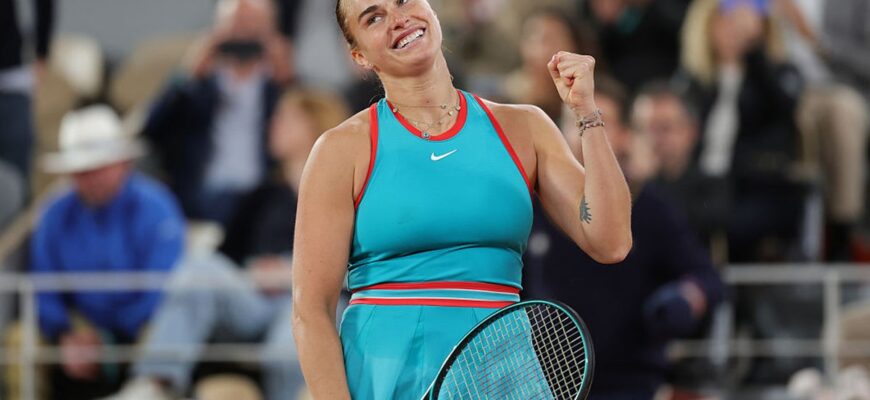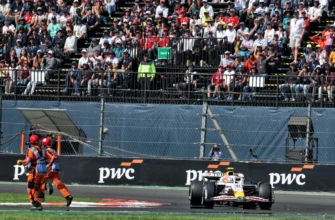Saturday`s French Open women`s final will see a new champion crowned. The final pits world No. 1 Aryna Sabalenka against world No. 2 Coco Gauff. While Sabalenka has claimed three Grand Slam titles to Gauff`s one, neither player has previously won at Roland Garros. We`ve gathered insights from our panel of experts on what each competitor needs to do to secure the victory.
What strategies can Gauff employ to defeat Sabalenka?
Rennae Stubbs: Gauff`s first serve percentage is critical; she needs to land over 60% to consistently hold serve under pressure. Achieving this, along with minimizing double faults, and utilizing her court speed to extend rallies and induce Sabalenka`s errors, are essential components for her to win.
Simon Cambers: Gauff possesses the game capable of troubling Sabalenka, which is a key mental advantage. The backhand exchanges will be particularly important. If Gauff can dictate the terms of most rallies, she stands a good chance in baseline confrontations. However, a high first-serve percentage is crucial, as Sabalenka is known to aggressively attack second serves unless they are placed effectively out of her comfort zone. Gauff`s renowned tenacity will also be vital, helping her navigate difficult moments brought on by Sabalenka`s powerful game.
D`Arcy Maine: In the semifinal, Gauff displayed exceptional composure and arguably her best tennis of the tournament. Her ability to perform under pressure in major moments has been clearly demonstrated, and the decisive semifinal win should boost her confidence significantly. Adding to this, she has defeated Sabalenka in a previous major final and has the experience of playing a Roland Garros final. If she can channel this self-belief, match experience, and emotional maturity, alongside a solid serving performance and her signature defense and court coverage, securing a second Grand Slam title is well within her grasp.
Bill Connelly: The history between these two players is quite unpredictable, marked by frequent shifts in momentum. Gauff`s service consistency is a significant factor in their head-to-head. When her first serve percentage exceeds 55%, she holds a 5-2 record against Sabalenka; below that threshold, she is 0-3. Therefore, consistently landing her first serve is arguably the most straightforward way for Gauff to increase her odds. While she will likely find opportunities to break Sabalenka, these will be much harder to capitalize on if her own serve is creating difficulties.
Tom Hamilton: Consistency is paramount for Gauff. She cannot afford periods of inconsistency in her serve or shot accuracy. She needs to maintain intense pressure throughout the match. As Sabalenka demonstrated in her match against Swiatek, she has the ability to find another level, particularly in the latter stages. Ideally, Gauff should aim to win in straight sets. Her experience with managing a partisan crowd, as D`Arcy noted, will be beneficial, although the Chatrier crowd might be more evenly split for this final. Gauff should draw on her previous experience in a Roland Garros final, channeling that disappointment into a determined performance, and crucially, she must prevent Sabalenka from establishing an early foothold.
What must Sabalenka do to defeat Gauff?
Rennae Stubbs: Sabalenka needs to aggressively target Gauff`s second serve and pressure her forehand wing. Serving well herself is also key; if her serve falters, Gauff is likely to win the longer, physically demanding points. Sabalenka should avoid overhitting but needs to actively look to shorten points and move forward, preventing Gauff from wearing her down physically and mentally through extended rallies.
Simon Cambers: Sabalenka likely believes that her best level is sufficient to win, supported by her recent form and past encounters (even with a 5-5 head-to-head record). A strong serving performance is crucial, and she will actively attack Gauff`s second serve whenever possible. While her game is often high-risk, she showed in the semifinal against Swiatek that she can temper her power with more spin or even use drop shots when necessary. Her excellent touch provides options even in deep baseline rallies, where Gauff`s movement is a major factor.
D`Arcy Maine: If Sabalenka can replicate the level she showed in the deciding set against Swiatek, she would be incredibly difficult to stop. However, their even head-to-head record highlights just how closely matched they are. Sabalenka`s recent 6-3, 7-6 (3) victory in the Madrid final provides a recent blueprint for success on clay. Similar to her approach against Swiatek, Sabalenka needs to start aggressively, dictate the pace, and make Gauff uncomfortable from the outset. As Gauff raises her level, Sabalenka must be prepared to respond in kind, as she did in Madrid. Sabalenka has found ways to improve and win throughout this tournament. If she can maintain focus on the match itself, rather than the magnitude of the occasion, the title is hers to take.
Connelly: Looking at their recent matches over the past year, Sabalenka`s ability to win longer points (seven shots or more) has been a strong indicator of success. In her wins, she has competed much better in these rallies compared to her losses. If Sabalenka can minimize errors against Gauff`s defensive skills and hold her own in extended exchanges, it removes a significant advantage for Gauff and forces the match onto shorter points where Sabalenka`s power is more dominant. Success in these longer rallies could tilt the match significantly in Sabalenka`s favor.
Tom Hamilton: Sabalenka simply needs to adhere to the strategies that have been successful for her so far. She possesses the shot variety to trouble Gauff and is well-equipped to punish any weak second serves. The level she reached in the third set against Swiatek is potentially unplayable for anyone on tour. Sabalenka appears completely at ease and confident at Roland Garros, effectively deflecting pressure. This quiet confidence is a worrying sign for her opponent. If she can find that same level of controlled aggression, she enters the final as the clear favorite.
Who is predicted to win?
Rennae Stubbs: I give a slight, and I mean slight, edge to Sabalenka in three sets.
Simon Cambers: Sabalenka in two sets. Winning this title is seen as a crucial step for her legacy, providing powerful extra motivation. Gauff`s serve and forehand remain areas that can be exploited under pressure, presenting vulnerabilities that are less apparent in Sabalenka`s game. While Gauff is mentally strong, it might not be enough against Sabalenka`s relentless power when she is playing at her best.
D`Arcy Maine: Sabalenka in three sets. My initial prediction was for Gauff at the start of the tournament, but Sabalenka`s near-masterclass performance against the defending champion Swiatek has led me to revise that. Witnessing her play at such an elevated level, combined with her strong desire to win a major outside of hard courts and avenge her 2023 US Open final loss to Gauff, makes a Sabalenka victory feel almost inevitable.
Connelly: Given the history of momentum shifts in their matches, a three-setter seems quite likely. When in doubt, I tend to favor the objectively better player, and Sabalenka fits that description. With a 40-6 record this year and reaching the finals of five of her last six Grand Slams, including overcoming the “Queen of Roland Garros” in the semifinal, her credentials are hard to ignore. Gauff was excellent in her semifinal and has a real chance if her serve is working, but Sabalenka is currently the world`s top player, and despite not winning every final she reaches, I predict she will take this one.
Tom Hamilton: Okay, it seems everyone else is picking Sabalenka. So, just to be contrary, I`m saying it`s Gauff`s time. I recall sitting in her press conference after her 2022 Roland Garros final loss to Swiatek. She was visibly upset, but there was also a quiet determination that if she got another chance, she wouldn`t let it slip away. Logic might point towards Sabalenka, but Gauff`s unquantifiable resolve could be the deciding factor. She absolutely must land those first serves consistently and prevent Sabalenka from getting comfortable. If she starts the match strongly and maintains that intensity, the title could well be Gauff`s.






